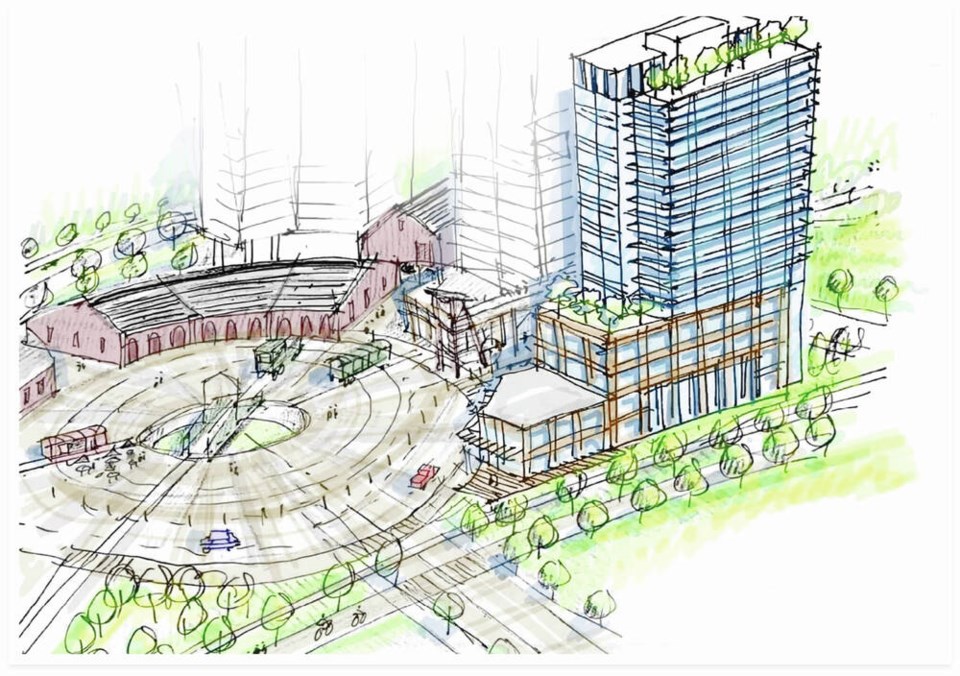Technology trumps tourism in Victoria, where the suburbs are outperforming a city core languishing from a lack of workers in an aging, government-heavy downtown
“Tech is now the No. 1 economic driver,” says Ross Marshall, senior vice-president of the Investment Properties Group at CBRE Ltd. in Victoria. “Tech supersedes tourism, and because Victoria is such a great place to live … those companies are looking to relocate and/or exploring expansion within this market.”
Victoria is home to upwards of 500 active tech companies representing about 15 per cent of the BC sector, according to the Victoria Innovation, Advanced Technology & Entrepreneurship Council (VIATEC).
The number of participants is also growing, both as entrepreneurs locate in the city and grow their businesses, drawing employees, and remote workers arrive drawn by the city’s lifestyle.
Working with the federal start-up visa program, VIATEC has endorsed 33 international companies to locate in Victoria. Of these, a dozen have made the move.
A further 500 or so private consultants with incorporated businesses also call the region home.
“We’re probably the fastest-growing region,” said Dan Gunn, CEO of VIATEC. “Our companies are employing more people who aren’t here than ever before, and people here are working for companies that aren’t here more than ever before. … Compared to similar places like Vancouver, it’s more affordable.”
This is true for the companies as the workers, Marshall said.
“It’s a less expensive place to live, it’s a cheaper place to do business as far as paying rent, and there’s a lifestyle factor,” he said. “There’s a reason why BCI and other companies call this home.”
On the office front, the hybrid work arrangements of many companies mean limited demand for office space, at the same time as a flight to quality is happening. This has boosted the fortunes of suburban office space, particularly as the social challenges plaguing Victoria’s core drag on a downtown market still heavily dominated by government tenants whose staff work remotely.
Yet all those remote workers, combined with being a university town and an attractive destination for retirees from across Canada has made Victoria an active market for residential real estate.
Developers are having trouble keeping up with the demand for housing, making residential land a hot asset class over the past year as others languished.
“It’s tap the brakes and wait for interest rates to come down and some certainty before anyone makes any sort of bold moves,” Marshall said of the overall investment environment over the past year. “The one difference in the past quarter that we’ve noticed … is the influx of inquiries for development land. Even though development land is still so exceptionally difficult to finance, it’s still been more well received.”
The cost of land, cost of debt, construction costs are issues that have not gone away. But entitled sites are attractive because of the “endless demand for rental.”
Victoria, and the Capital Regional District generally, have been attracting developers from the Lower Mainland who see opportunities here. While much of the activity has been taking place in Westshore communities like Langford, those closer to the core such as Esquimalt, Victoria West and even downtown sites have seen growing demand.
Victoria council gave approval earlier this year to the Roundhouse at Bayview Place, a 1,900-unit project Focus Equities has pursued for more than 15 years.
Reliance Properties Ltd., for its part, is pursuing the rezoning of 6.7 acres of harbourfront in the north end of downtown for a mixed-use community featuring light industrial, institutional and residential space.
There are also major plans for the area around the city’s Anglican cathedral. The church itself is proposing 500 units in six towers on its property, while Concert Properties Ltd. is seeking rezoning of the Y site across the street for 220 condos, 150 rental units, a public plaza and some retail space.
The growth isn’t sitting well with everyone, resulting in a knock-on effect in communities up-Island, Marshall said. The Cowichan Valley, Parksville and even Campbell River areas have become beneficiaries of those who don’t want to be in the emerging Victoria.
“There’s a benefit to locating up there, especially if you want a slower lifestyle,” Marshall said. “There’s more and more new rental and other forms of housing coming to the market to satisfy the demand, and I don’t see that slowing down any time soon.”


